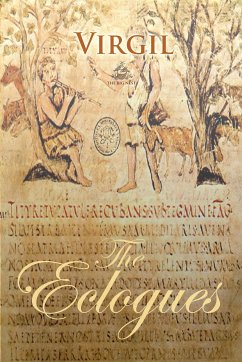This Virgil's book contains ten pieces, each called an eclogue, populated by and large with herdsmen imagined conversing and singing in largely rural settings, whether suffering or embracing revolutionary change or happy or unhappy love. Performed with great success on the Roman stage, they feature a mix of visionary politics and eroticism that made Virgil a celebrity, legendary in his own lifetime.
Dieser Download kann aus rechtlichen Gründen nur mit Rechnungsadresse in A, B, BG, CY, CZ, D, DK, EW, E, FIN, F, GR, HR, H, IRL, I, LT, L, LR, M, NL, PL, P, R, S, SLO, SK ausgeliefert werden.

